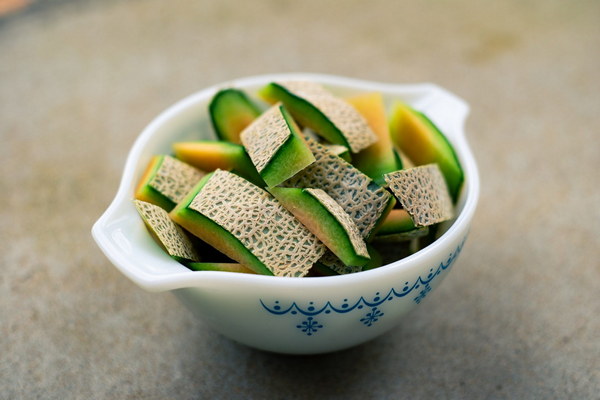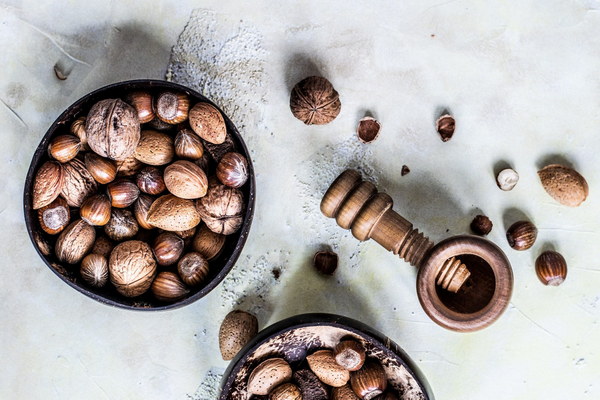Can Chrysanthemum Tea Really Eliminate Dampness in Your Body
In the realm of traditional Chinese medicine, chrysanthemum tea is often praised for its numerous health benefits. One of the most commonly discussed benefits is its ability to eliminate dampness from the body. But can chrysanthemum tea really help in this way? Let’s delve into the topic and uncover the truth behind this claim.
Firstly, it is essential to understand what dampness means in traditional Chinese medicine. Dampness is a concept that refers to an imbalance in the body’s internal environment, which can lead to various health issues, such as fatigue, bloating, and poor digestion. In TCM, chrysanthemum tea is believed to have properties that can help alleviate dampness and bring balance to the body.
Chrysanthemum tea, also known as ju hua cha in Chinese, is derived from the dried petals of the chrysanthemum flower. This herbal tea has been used for centuries in Chinese culture and is known for its mild, sweet, and slightly bitter taste. The petals of the chrysanthemum flower are rich in antioxidants, vitamins, and minerals, which contribute to its health benefits.
One of the primary reasons chrysanthemum tea is believed to eliminate dampness is due to its diuretic properties. Diuretics are substances that increase urine production, which helps to flush out excess water and toxins from the body. By promoting diuresis, chrysanthemum tea can help alleviate symptoms associated with dampness, such as bloating and fluid retention.
Moreover, chrysanthemum tea is thought to have a cooling effect on the body, which can help reduce internal heat and dampness. In TCM, internal heat is considered to be a significant cause of dampness. By cooling the body, chrysanthemum tea may help restore balance and alleviate symptoms of dampness.
Another reason chrysanthemum tea is associated with dampness elimination is its ability to improve digestion. In TCM, dampness is often linked to poor digestion, as it can impede the movement of Qi (vital energy) in the body. Chrysanthemum tea contains compounds that can stimulate the digestive system and improve the absorption of nutrients, thus helping to eliminate dampness.
However, it is crucial to note that while chrysanthemum tea may have some benefits in alleviating dampness, it is not a cure-all for all dampness-related health issues. The effectiveness of chrysanthemum tea can vary from person to person, depending on individual health conditions and the severity of dampness.
If you are considering using chrysanthemum tea to eliminate dampness, here are a few tips:
1. Brew the tea correctly: Use fresh, high-quality chrysanthemum petals and follow the recommended brewing instructions. Steep the tea for about 5-10 minutes to ensure that the beneficial compounds are extracted.
2. Drink regularly: Consistency is key when it comes to reaping the benefits of chrysanthemum tea. Aim to drink a cup of the tea daily, especially during the damp season or if you are experiencing symptoms of dampness.
3. Combine with other herbs: If you are dealing with severe dampness, consider combining chrysanthemum tea with other TCM herbs, such as pu’erh tea, ginger, or cinnamon. Consult with a qualified TCM practitioner for personalized advice.

4. Lifestyle adjustments: While chrysanthemum tea can help alleviate dampness, it is also important to make lifestyle adjustments. Avoid excessive dampness-inducing foods, such as sugary, fried, and cold foods. Instead, focus on a balanced diet rich in whole grains, vegetables, and lean proteins.
In conclusion, chrysanthemum tea may indeed have properties that can help eliminate dampness in the body. Its diuretic, cooling, and digestive benefits make it a popular choice among those seeking to alleviate dampness-related symptoms. However, it is essential to approach chrysanthemum tea as a complementary treatment and not a substitute for professional medical advice. Always consult with a healthcare provider before starting any new herbal treatment.









